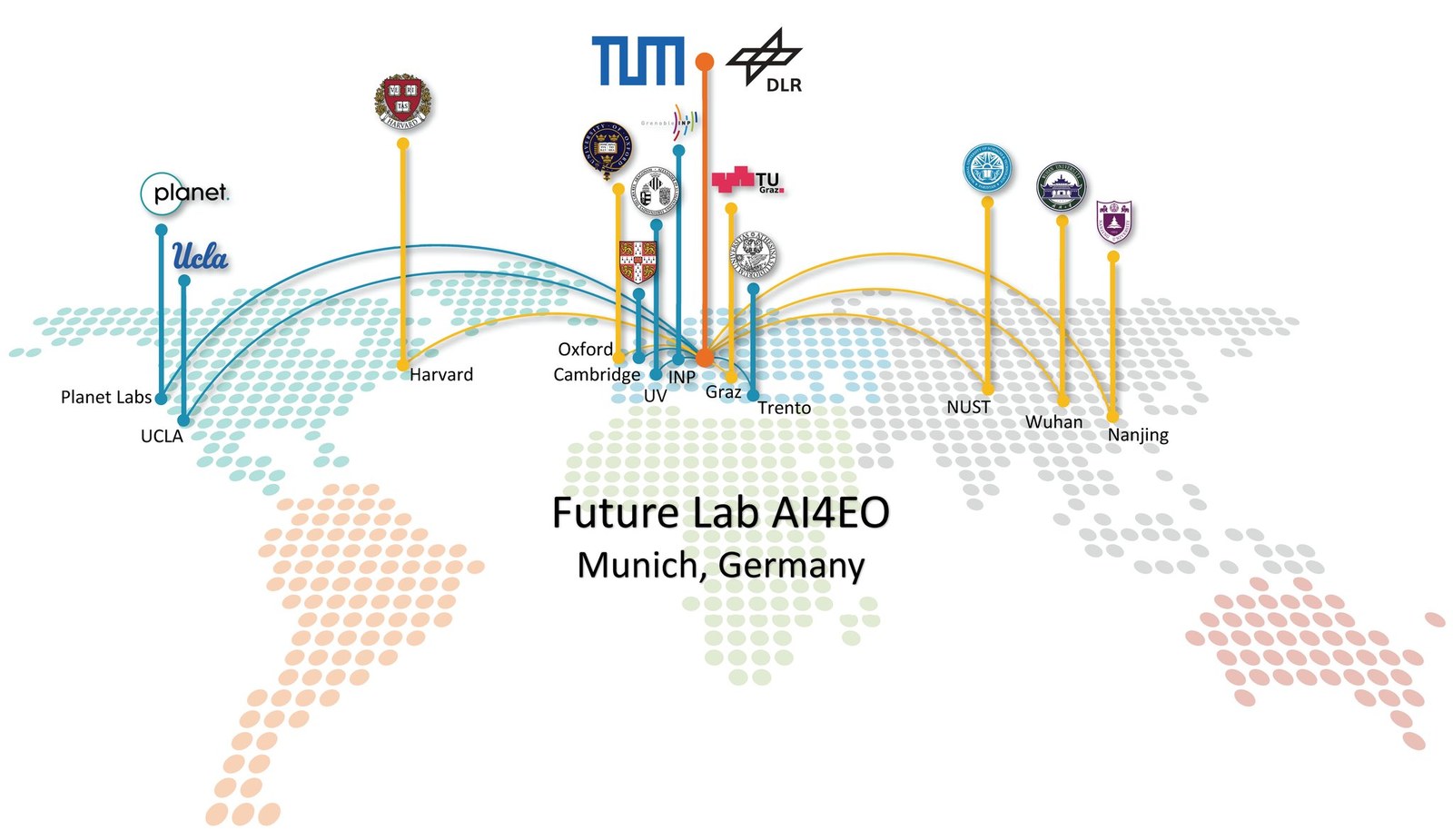Artificial intelligence in earth observation
In May 2020 three “International Future Labs for Artificial Intelligence”, the outcome of a competition launched by the Federal Ministry of Education and Research (BMBF), will begin work. One of them is the Future Lab ‘Artificial Intelligence for Earth Observation: Reasoning, Uncertainties, Ethics and Beyond’ (AI4EO), led by Munich Technical University (TUM) in collaboration with the German Aerospace Center (DLR). It will be concerned with the development of artificial intelligence (AI) technologies in earth observation. AI-based big-data analysis promises to revolutionise the use of satellite data for such purposes as quantifying global urbanisation, supplying data on the nourishment of the world's population, and improving the management of natural hazards. Conversion of data collected from space into knowledge is expected to help decision-makers on the ground to design sustainable cities worth living in, or to bring forest fires promptly under control, for example. In addition, there are still many fundamental questions about AI needing investigation, which the Lab will address with the help of international experts.
“At Future Lab AI4EO we want to use AI to become better at filtering out from the immense wealth of available earth observation data knowledge about global change”, explains the head of the Future Lab, Prof. Xiaoxiang Zhu from TUM and DLR's Remote Sensing Technology Institute in Oberpfaffenhofen. “In addition, we want to investigate the quantification of uncertainties in data analysis and ethical issues relating to earth observation.”
AI methodologies for rapidly growing amounts of data
The amount of earth observation data being collected is increasing rapidly and is now so huge that the required information will in the future only be accessible with AI methodologies. News insights and up-to-now unrecognized relationships need to be detected in the data to a much greater extent. Then long-time monitoring of an area can make certain types of change visible. This is related to fundamental questions like the reliability and precision of information harvested from AI systems, topics that will also be investigated in the context of AI4EO. Public utilisation of the data and the associated insights will in the future also be a concern of the Future Lab, as well as their possible misuse. Another important topic is the safeguarding of private information in light of the ever higher resolution of images collected by orbiting satellites.
DLR is one of the pioneers in the field of AI use in earth observation and contributes to the Future Lab its decades of experience in developing remote sensing methodologies and assessing data. A total of 27 researchers from 20 organisations in the USA, Europe and China as well as 70 junior scientists will focus on developing AI technologies for earth observation applications. “The goal of the AI4EO Future Lab is to consolidate Germany's top position in this field”, explains Prof. Xiaoxiang Zhu. In order to achieve this goal, the researchers are applying a holistic interdisciplinary approach in which not only new earth observations methods will be developed, but also the associated basic research undertaken.
BMBF will finance each Future Lab for three years with up to five million euro. Besides the earth observation lab, the two other selected Future Labs will investigate ‘More Efficient Biolabs by Using Artificial Intelligence’ and ‘Artificial Intelligence and Personalised Medicine’. “We want to further expand German strengths in AI research, with international collaboration playing an important role. Insights of international significance require international cooperation. For that reason we are strengthening the international dimension of German AI research with Artificial Intelligence Future Labs”, Federal Minister of Research Anja Karliczek stressed when the allocations were made. The international networks of German AI research should become even more closely connected through the work of the three Future Labs.


